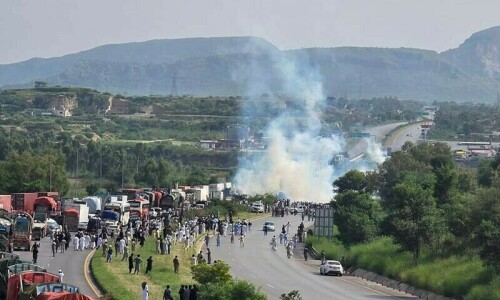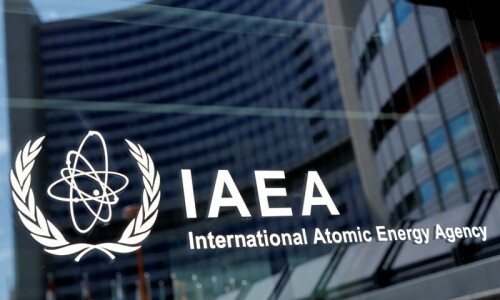President Nicolas Sarkozy, modest as ever, claims to have “changed Europe” during his six months in the EU presidency. He also says, more intriguingly, that Europe has “changed” him.
What does he mean? On the first point, Mr Sarkozy has half a point. It is difficult to remember any EU leader who has thrown himself so busily, so officiously and – on the whole – so effectively into the thankless business of herding the 27 cats of the European Union. Tony Blair promised a lot when he did the job a couple of years ago and delivered very little.
President Sarkozy cut short a Russia-Georgia war which might have turned very nasty (albeit giving Russia most of what it wanted). In partnership with Gordon Brown, he set common rules for EU governments to refloat their drowning banks (rules which were rapidly copied by Washington). He pushed through a battered, but still valuable, world-leading EU plan to curb carbon emissions.
Most of all, M. Sarkozy, in his unquenchable determination to be at the centre of any game he is playing, put the European Union at the centre of the world game. There is a lesson here.
The EU need not always be 27 dwarfs standing on one another’s shoulders and putting most of their energy into trying not to fall over. The European Union can – gasp! – count in the world. With a little energy and ambition and leadership, the EU can act like a giant. For a short time anyway.
Looking into 2009, the prospects for Mr Sarkozy’s “changed” Europe are less encouraging. The French president was lucky. He was able to occupy part of the global power vacuum created by the collapse of what remained of the authority of George Bush and the collapse of the giant pyramid fraud underpinning the American economy.
Barack Obama will occupy part of that vacuum from this month. Nothing in president-elect Obama’s career or campaign suggests that he will be willing to share the responsibility, or limelight, with Europe. With individual European governments maybe; with the European Union hardly at all.
President Sarkozy ceased to hold the EU presidency this week. He would have liked a grateful and adoring Europe to have declared him president for life or at least the president of the 16 Euroland states until the end of the year. The other governments, with Germany in the forefront, refused. They may come to regret it.
The French president will make a final curtain call when he travels to Israel next week to try to broker a ceasefire in Gaza. Otherwise, the job of herding the 27 European cats passed this week to a country which – just like a cat – cannot decide whether it wants to be inside (the EU) or outside.
The President of the Czech Republic, Vaclav Klaus, is an implacable Eurosceptic. The Prime Minister, Mirek Topolanek, is a moderate, pro-European. The country has yet to ratify the Lisbon “reform” treaty. It does not yet belong to the euro.
In a normal year, none of this would matter too much. Small countries with divided governments have taken over the EU presidency before and done reasonably well. Mr Topolanek is an intelligent man of good faith. President Klaus has limited powers. But this is not a normal year. The EU faces challenges, not just to its new Sarkozy-inspired self-confidence, but to some of the foundations of its existence.
The failure last month – partly Mr Sarkozy’s failure – to agree a true common effort to refloat the EU economies is disturbing. The “fund” agreed is, in GDP terms, a quarter of what the US is already planning and a small fraction of what Obama may yet invest. Worse, some EU governments are planning to stoke up the offer side of the economy and others to heat up demand. (Imagine if Texas planned to go one way and California another.)
Germany is the only country which could pump large sums into the European economy without drowning in debt. It is refusing to do so.
A group of heavily indebted countries – Greece, Ireland but also Italy and Belgium – could face real difficulties in sustaining their private and public debt repayments this year. The stability of the euro, despite its current insolent health, could be threatened. French officials fear that the riots in Greece may be just a taste of what could yet happen elsewhere.
On top of all that, Russia, facing economic difficulties of its own, has decided to test the nerve and unity of a Czech-led EU by resorting once again to bullying the Ukraine with its gas supplies (and implicitly the rest of Europe). Good luck Messrs Topolanek and Kraus! And good luck to the Swedish government after 1 July. Even the Germans may come to miss the energy and determination of Mr Sarkozy.
So what did the French President mean when he told the European parliament that his six months as EU president had not only “changed” Europe but also “changed” him? Elyse officials say that the French president had been something of a closet Euro-pessimist before his experiences in the second half of last year. He was always more interested in domestic policy than European or international affairs; he found the need for elaborate compromise with 26 partners irritating.
He has now, it is said, acquired a taste for late-night arm-twisting sessions. He has been bitten by the European bug. He is convinced that Europe is not only a necessary nuisance but an important part of the solution – so long as someone can cut through the Gordian (or Gordon) knots. Someone rather like him.
There’s the rub. The EU rotating presidencies, whatever the qualities of the individuals, are a formula for muddled leadership. Mr Sarkozy’s bravura performance in the past six months has, if anything, shown up the lack of leadership from Jose-Manuel Barroso, the competent but uninspiring president of the European Commission.
Under the EU reforms due to take effect in 2010 (Ireland permitting) there is supposed to be a “permanent” EU council president. It has become clear, however, that a majority of EU capitals – including Paris – want to appoint a limited apparatchik to the job: another Barroso rather than a Sarko.
Unless, of course, President Sarkozy, who leaves office in 2012, should start to fancy the job himself.—Dawn/The Independent News Service












































Dear visitor, the comments section is undergoing an overhaul and will return soon.